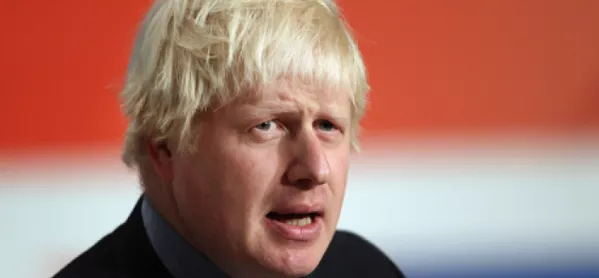Prime minister Boris Johnson says getting our children back into school in September is “a national priority” - despite new figures showing the prevalence of the virus “is likely to be rising”.
Speaking at a special Downing Street press conference following the new lockdown measures announced for Manchester, East Lancashire and West Yorkshire last night, he said new weekly figures from the Office of National Statistics (ONS) showed that the prevalence of the virus in communities in England is likely to be rising for the first time since May.
And he was asked by the media whether, in light of the new situation, he still wanted to get people to go back to the workplace in August and pupils back to school in September.
Related: Heads hit out over lack of cash for September opening
Guidance: ‘Extremely vulnerable’ teachers expected back in school
News: School Covid outbreaks won’t ‘generally’ mean closures
He replied: “I do believe that getting our children back into school on 1 September, and 11 August if they’re going back in Scotland, should be a national priority.
“That should be something we aim to deliver. It’s the right thing for children that they can be educated in a safe and a Covid-secure way and we should be getting them back into school. But what we will continue to do, obviously, is institute local lockdowns to stop the virus getting out of control.”
Julie McCulloch, director of policy at the Association of School and College Leaders, said the union “agreed wholeheartedly” with the government’s ambition, but said there was concern that it “still lacks a Plan B”.
She said: “It would surely be prudent for the government to have an alternative strategy if there is a second national shutdown, or otherwise we will back to square one again. For example, this could take the form of blended learning with pupils spending some time in school and some time learning at home. But the detail of such a plan needs to be developed now. We would then have an off-the-peg Plan B that is ready to go if needed.
“We can all see from recent events how precarious the situation remains over the control of coronavirus, and we cannot assume that Plan A will work.”
The ONS figures show that one in 1,500 people in England now have the virus compared with one in 1,800 on 15 July and one in 2,000 on 2 July.
Chief medical officer for England, Professor Chis Whitty, told the briefing: “The idea that we can open up everything and keep the virus under control is clearly wrong and what we are seeing is that we are at the outer edge of what we can do and therefore choices will need to be made, but people are very clear, for example, that schools are an absolute priority for the welfare of children.”




